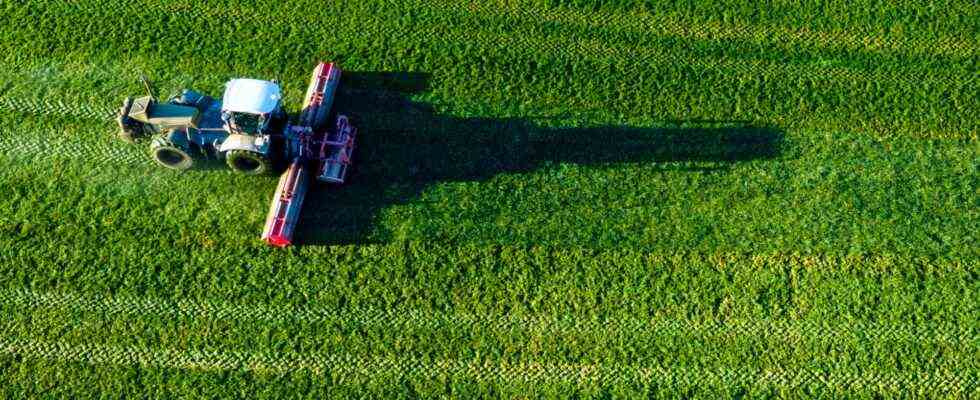Status: 11/23/2021 3:11 a.m.
The EU Parliament is voting today on the long-negotiated agricultural reform. Agriculture Minister Klöckner speaks of a milestone. The SPD and the Greens see it completely differently.
For the acting Federal Minister of Agriculture, Julia Klöckner, the matter is completely clear. This reform of European agricultural policy was a difficult birth – but in the end a success. “It is a system change that we have heralded here. It is a milestone that we have here,” said Klöckner.
If so, it took the EU a long time to reach this milestone: as early as 2018, the then Commission presented an initial reform proposal, which was then gradually torn apart by the member states.
Renegotiated after von der Leyens took office
Then came a new EU Commission and its boss Ursula von der Leyen declared climate protection and climate neutrality to be her very first political goal. So many thought: This should also be reflected in a new EU agricultural policy. So it was renegotiated. About a more sustainable and greener agriculture, with less use of fertilizers, less factory farming, less CO2, but with more nature and animal protection.
But nothing came of it, says the SPD European parliamentarian and agricultural expert Maria Noichl. Because the supposedly new agricultural policy does not oblige Europe’s farmers to greener agriculture, but rather only politely urge them to do so. “You can do something for environmental protection, you can do something for animal welfare – you can, you can, but not: you have to,” says Noichl. “They really shied away from the ‘must’. But the ‘must’ would have been so important.” This reform demands too little from farmers.
Most of the funding fields continue to be based on size
The member states and Klöckner see it differently. With the new so-called eco-schemes, there are certainly incentives for greener agriculture. And in order to get subsidies from Brussels at all, the companies would have to meet minimum requirements for more ecological production.
However, critics say: These requirements are not clearly defined. And the fact is: in the future, too, the largest part of the total of almost 400 billion euros that Brussels will distribute to farms over seven years will go into promoting pure cultivation area – according to the principle: whoever has more gets more.
Martin Häusling, the green agricultural politician in the EU Parliament, sees this as the core problem. “That means that nothing will change on these points in agricultural practice. There are a lot of footnotes in it.”
Klöckner defends compromise
But more was not possible in the tough struggle of the 27 EU states over agricultural reform, according to the Federal Ministry of Agriculture. In this respect, it is “our responsibility to ensure that we will continue to have a secure supply in Europe with short supply chains in the future,” says Klöckner.
She points out that the member states could now also lay down more binding organic rules for their farmers. “Some hope that the member states will then cure what we in Parliament and the Council failed to manage. I think that will also prove to be a mistake,” says Häusling.
Majority in parliament for sure
And for Maria Noichl from the SPD it is clear that this reform has to be rejected: “The agrarian reform is simply not a step into the future. It is a step that remains almost on the spot – and that for another seven years. That’s why you have to go along with it ‘Vote no.”
This is what parts of the Social Democrats in the European Parliament will do today, as will the Greens, and possibly some liberals as well. Nevertheless, a majority in parliament is certain of the reform, especially because conservatives and Christian Democrats are in favor – including those from Germany.
Cabbage and beet EU Parliament finally votes on agricultural reform
Holger Beckmann, ARD Brussels, 11/22/2021 8:34 p.m.

